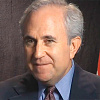Reviving John F. Kennedy’s “Vision of Peace”
In
Log in if you are already registered
On June 10, 1963, less than eight months after his nearly-catastrophic confrontation with the Soviet Union over nuclear missiles they placed in Cuba, President John F. Kennedy (JFK) delivered a speech which must be heard by everyone concerned about the existential threat emanating from NATO’s aggressive stance against Russia in Ukraine. The decision in October 1962 by JFK to blockade Cuba brought the two nations face-to-face in a possible nuclear confrontation. Both leaders were under heavy pressure from “hard-liners” in their defense and intelligence establishments not to back down in the face of threats from the other.

For a period lasting nearly two weeks, there were legitimate fears that nuclear war could break out. Kennedy found a way to outflank his war hawks, opening a back channel to the Soviets, in which his brother, Attorney Robert F. Kennedy, spoke with the Soviet Ambassador in Washington, Anatoly Dobrynin. Agreement was reached that the Soviets would dismantle and remove the missiles in Cuba, in return for the U.S. doing the same with nuclear missiles in Turkey. To help JFK save face, Khrushchev agreed to make no public announcement about the removal of the U.S. missiles.
This quid-pro-quo became the basis for cooperation which could have ended the Cold War. The June 10, 1963 speech by JFK, delivered at American University in Washington, D.C., represented an open public initiative to win both the citizens of America and the Soviet Union over to a process which could not have just ended the Cold War but created an impetus for a world without war.
Kennedy’s speech reflected his awareness that Khrushchev had to deal with recalcitrant Cold Warriors not too different from those he faced in his administration, who believed that his failure to bomb Cuba proved he was too weak. Further, he recognized that to outflank them, it was necessary to organize the population for peace, which he did in the following passages:
“What kind of peace do I mean? What kind of peace do we seek? Not a Pax Americana enforced on the world by American weapons of war. Not the peace of the grave, or the security of the slave. I am talking about genuine peace, the kind of peace that makes life on Earth worth living, the kind that enables men and nations to grow and to hope and to build a better life for their children—not merely peace for Americans, but peace for all men and women—not merely peace in our time, but peace for all time.”
He continued this appeal by identifying that there are common aims for all people, saying that “...if we cannot end now our differences, at least we can help make the world safe for diversity. For, in the final analysis, our most basic common link is that we all inhabit this small planet. We all breathe the same air. We all cherish our children's future. And we are all mortal.”
The speech had its desired effect. Khrushchev called it “the greatest speech by any American president since Roosevelt.” Back-channel discussions continued and deepened. On August 5, the Nuclear Test Ban Treaty was signed, after eight years of negotiations, and against the wishes of the hard-line Cold Warriors surrounding Kennedy. And there is documentary evidence which confirms that JFK was preparing for a withdrawal of U.S. troops from Vietnam. His assassination ended that hope for peace, as the special interests behind the war hawks launched the U.S. into six decades of virtually perpetual war, up to the present day.
On June 10 this year, the Schiller Institute will hold an online seminar to commemorate this singular moment of exemplary statecraft by an American president. The event will be dedicated to recreate a living memory of the transformation underway in Kennedy’s thinking, to revive the better tradition of U.S. history, and introduce it to many too young to have lived through it. As stated in the “Urgent Appeal to the (Next) President of the United States”, we can only overcome the war danger explicit in the U.S.-U.K.-NATO escalation against Russia and China, by adopting a mentality “that overcomes geopolitics and takes the perspective of the interest of one humanity”, as expressed “in that beautiful speech of JFK.”
To register for the conference, “The World Needs JFK’s Vision of Peace”, use this link:
https://schillerinstitute.nationbuilder.com/conference_20230610
Vice President of the Schiller Institute USA, National Spokesman for Lyndon LaRouche
Blog: Harley Schlanger's Blog
Rating: 0




